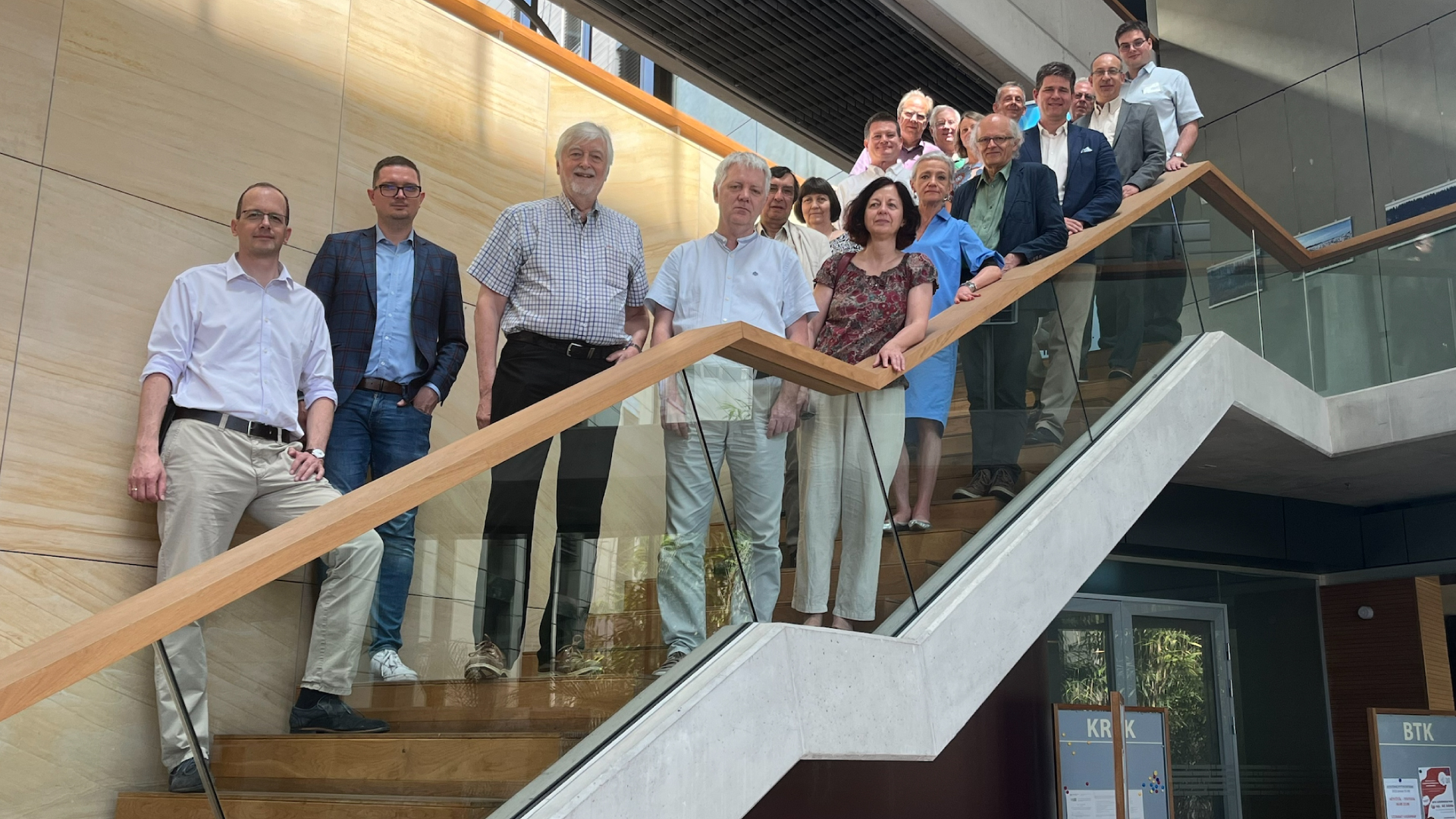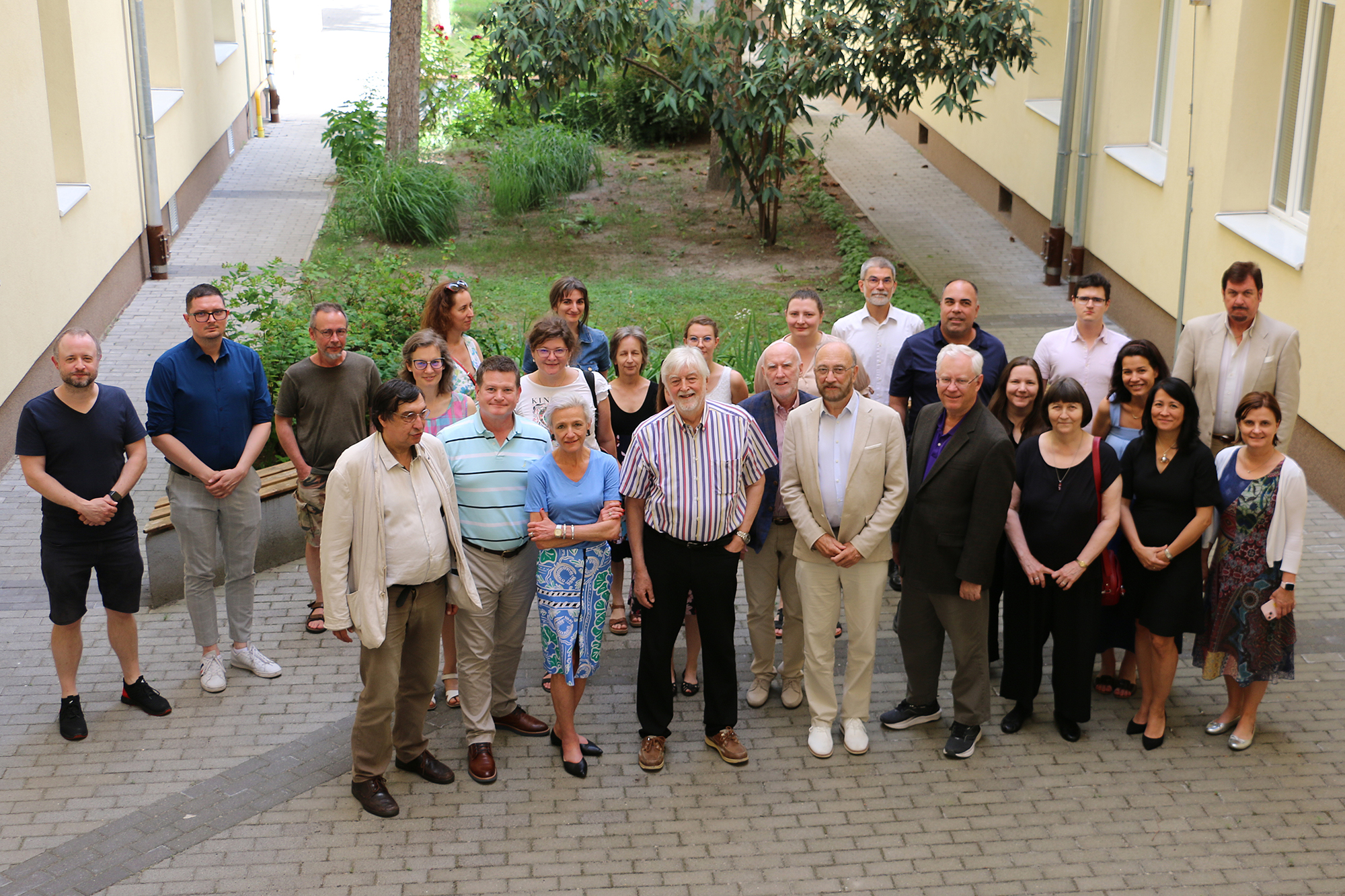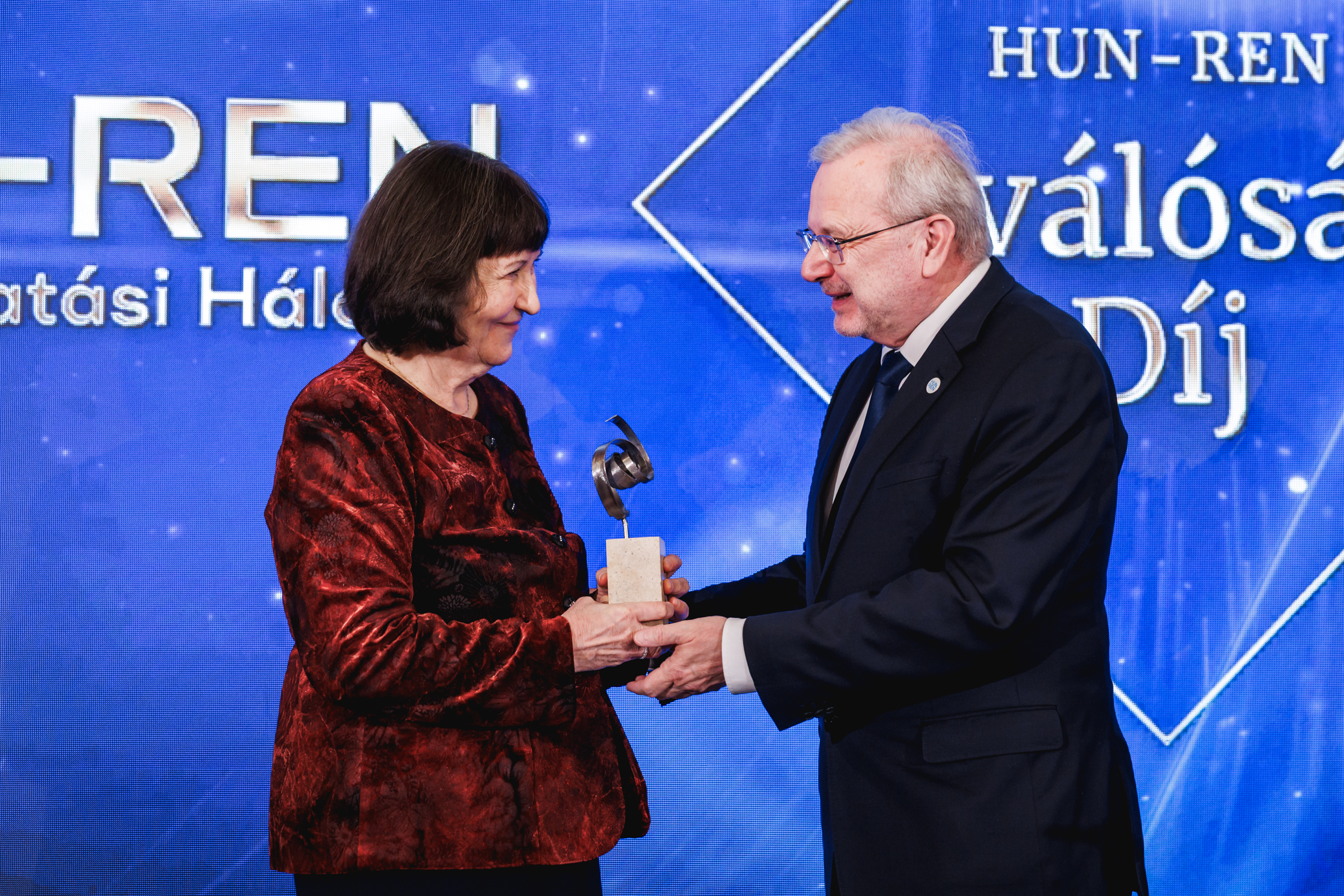Analyses of On-site Assessments to Begin
The review of the operations of 49 research institutes belonging to the Hungarian Research Network (HUN-REN) began in January with institutions in the life sciences (LIFE). In spring, the committees, which include renowned international researchers, visited research centres focused on mathematics and natural sciences (STEM). The final phase involves evaluating institutes dedicated to the humanities (SHAPE). This comprehensive assessment aims to provide an impartial and honest overview of the status of HUN-REN research institutes in an international context and identify possible break-out points.
At the end of June, HUN-REN's fourth strategy workshop will present the first results of the assessment, the final phase of which started at the end of May with a review of research institutions in the humanities.
In June, the HUN-REN Center for Economic and Regional Studies (CERS) and the HUN-REN Research Center for Linguistics (RCL) presented their work to an expert evaluation committee. The former comprises three institutes (the Institute of Economics, the Institute of Regional Studies and the Institute of World Economy), while the latter was formed in 2021 by the merger of four linguistic research institutes (the Institute of General and Hungarian Linguistics, the Institute of Lexicology, the Institute of Language Technology and Applied Linguistics and the Institute of Historical Linguistics and Uralic Studies).
CERS researchers showcased their 40-terminal laboratory infrastructure supporting experimental economic research and unique experiments conducted there. The institute also houses, uniquely in the region, a world-leading research room equipped with 12 terminals that comply with stringent regulations, providing access to anonymized datasets prepared by the Central Statistical Office.

RCL's primary tasks include scientific research in Hungarian, general, applied, and Uralic linguistics, and phonetics, along with compiling the extensive dictionary of Hungarian literary and colloquial language. The committee also learned about RCL's flagship project, PULI, which is similar to the ChatGPT AI but is more sophisticated in Hungarian. PULI is being used to study generative AI, including predicting the most likely next word in a text sequence. PULI has also shown potential for filling a market niche by anonymizing sensitive data ahead of major web-based AI applications.

Members of the evaluation committees for CERS and RCL:
- Prof. Alexander J.B. Zehnder: Visiting professor at Nanyang Technological University (NTU), professor emeritus at ETH Zurich, and chairman of the HUN-REN Advisory Board.
- Dr. István Szabó, PhD: Deputy CEO of HUN-REN for strategy and innovation, former deputy chairman for science and international affairs at the National Research, Development, and Innovation Office, and founder of the Hungarian Economic Association's Innovation Section.
- Prof. Dr. habil. Petra Aczél: University professor, communication researcher, rhetorician, member of the Research Excellence Council, the Interdepartmental Standing Committee for Communication and Media Studies of the Hungarian Academy of Sciences, and the Hungarian National Committee for UNESCO.
- Dr. Mária Gósy: Professor emeritus of phonetics and psycholinguistics at Eötvös Loránd University (ELTE) and the HUN-REN Research Center for Linguistics, chair of the Professional Board of Humanities and Social Sciences, former chair of the International Phonetics Society.
- Christopher Ball: Founder and director of the Central European Institute at Quinnipiac University and honorary Hungarian consul in Connecticut. Between 1994-1998 he worked as programme director of the Hungarian Atlantic Council, and later as a research fellow at the Institute of Current World Affairs (USA).
- Prof. Robert Kennedy: Former Goh Tjoei Kok professor of Business Management at Nanyang Business School and former dean of the Ivey Business School in Canada.
- Roger Vergauwen: Professor emeritus of the Institute of Philosophy at the University of Leuven, former senior research fellow at the University of Pittsburgh (USA), currently president of the National Centre for Logic Research (NCNL-CNRL) in Belgium.
- Andreas Freytag: Professor of Economics at the Friedrich-Schiller University in Jena, honorary professor at the University of Stellenbosch, South Africa, and visiting professor at the University of Adelaide's Institute of International Trade. He is also director of Tutwa Europe, senior research fellow at ECIPE in Brussels and senior fellow at SAIIA in Johannesburg.
- Chris Hann: Honorary professor at the University of Kent, Martin Luther University and the University of Leipzig, former director of the Max Planck Institute for Social Anthropology, member of the Academia Europaea.
- Prof. Marc Vervenne: Former, now honorary rector and professor emeritus of the University of Leuven. He is an expert in the evaluation of new university programmes for the Netherlands-Flemish Accreditation Organisation (NVAO) and a member of the committees for the evaluation of higher education institutions in the Netherlands.
Following the assessment phase, work will proceed with specific proposals
Over the past six months, the evaluation committees have visited all 49 research institutes, observing unique features such as Hungary’s largest, fully restored exhibition telescope at the Svábhegy Observatory and the country’s sole veterinary research centre focused on molecular microbiology. They also reviewed cutting-edge microscopes and neural activity measurement tools at the Institute of Experimental Medicine and observed plant growth under varying climatic conditions in the advanced Fitotron chambers at the Martonvásár Agricultural Research Institute.
“Using the assessment results, our goal is to establish a modern scientific ecosystem in our institutes, enabling Hungary to achieve a significant leap in innovation,” emphasized Professor Balázs Gulyás, president of the HUN-REN Hungarian Research Network.

